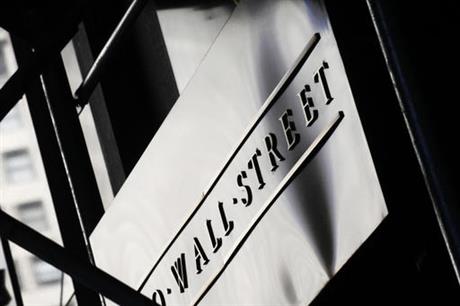U.S. Stock Market Holds Steady Amid Rising Trade Tensions
In early Wednesday trading, the U.S. stock market exhibited a cautious yet stable performance despite significant fluctuations seen in global markets, primarily fueled by escalating trade disputes initiated by President Donald Trump.
The S&P 500 index remained almost unchanged after futures hinted at a potentially steeper decline. Notably, the Dow Jones Industrial Average showed a decline of 170 points, approximately 0.5%, while the Nasdaq composite index experienced a slight uptick of 0.5% by 9:35 a.m. Eastern Time.
Market Volatility and Trade War Impacts
Financial markets have been characterized by extreme volatility recently, with the S&P 500 swinging dramatically—recording fluctuations between a gain of 4.1% and a loss of 3% on Tuesday alone. These sharp reversals underscore the uncertainty gripping investors.
The fluctuations align with the latest implementation of tariffs, which have led to significant market reactions. As of midnight, new tariffs on imports were enacted, including a staggering 104% on goods from China, prompting immediate retaliatory measures from Beijing, which announced an increase of tariffs on U.S. exports to 84% starting Thursday. The Chinese Ministry of Commerce stated, “If the U.S. insists on further escalating its economic and trade restrictions, China has the firm will and abundant means to take necessary countermeasures and fight to the end.”
Potential Recession Fears and Investor Sentiments
The aggressive tariff strategies between the U.S. and China are generating concerns among economists and investors alike regarding the potential for a prolonged economic downturn. Nonetheless, there is some optimism on Wall Street that ongoing negotiations may lead to a reduction of tariffs.
In the bond market, significant movements were noted, with rising Treasury yields, particularly on the 10-year bond, which climbed to 4.36% from 4.26% late on Tuesday, having started at 4.01% at the week’s beginning. This surge in yields is indicative of market stress, which may compel hedge funds and other investors to liquidate Treasury bonds to cover losses from the stock market declines.
Corporate Responses and Economic Uncertainty
The current atmosphere of uncertainty is complicating financial planning for numerous U.S. companies. Delta Air Lines, for example, retracted its financial forecasts for 2025 due to the unpredictable nature of the trade war impacting consumer spending and travel bookings. Despite this, Delta’s stock rose by 7.1%, reflecting investor optimism in its strategic adjustments.
CEO Ed Bastian remarked, “With broad economic uncertainty around global trade, growth has largely stalled. In this slower-growth environment, we are protecting margins and cash flow by focusing on what we can control.”
Global Market Reactions
Meanwhile, international markets reflected turmoil, with steep declines across Europe and much of Asia. The London FTSE 100 fell by 2.7%, Tokyo’s Nikkei 225 dropped 3.9%, and France’s CAC 40 decreased by 3.3%. In contrast, Chinese indexes showed resilience, with gains of 0.7% in Hong Kong and 1.3% in Shanghai, standing out amidst the global downturn.

